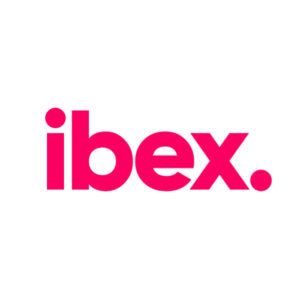2024 is the Year of the Wood Dragon, which is thought to signify unprecedented opportunities for evolution and abundance. This seems true for the BPO industry, where technological advancements and shifting dynamics drive a parallel transformation narrative. Riding this wave demands companies to embrace an adaptive mindset. As we step into the next 12 months, four key trends are poised to reshape the industry, each carrying the potential to propel businesses to greater heights if harnessed effectively.
Hyper-Automation is Revolutionizing BPO Operations
Hyper-automation takes automation a step further by integrating multiple advanced technologies and platforms, such as artificial intelligence (AI), machine learning (ML), and robotic process automation (RPA), to optimize as many business processes as possible across a company.
In the BPO context, hyper-automation often leads to increased operational efficiency, as it involves the automation of entire workflows, generally improving customer service and reducing, if not eliminating, the costs of legacy processes.
While an emerging approach, a Gartner survey suggests that investments in hyper-automation will increase in 2024, making it a strategic technology trend to watch out for.
Small/Mid-Sized Companies are Redefining CX and EX Expectations
The spotlight is on smaller and mid-sized BPO companies setting new benchmarks for Customer Experience (CX) and Employee Experience (EX) excellence by focusing on the human in a customer and employee.
CX is elevated from a support function to a core differentiator through a commitment to both a customer-centric approach and digital transformation. Small and mid-sized BPO
companies, those in the Philippines, for example, are personalizing their customers’ experiences using data analytics, sentiment analysis, and AI, providing omnichannel support, offering 24/7 support, and leveraging automation tools for faster response times.
Recognizing their people as partners in their mission, these companies make substantial investments in employee training and development in both soft and technical skills. In turn, employees become assets in delivering a seamless and unified customer experience through personalized customer interactions.
Frontier Cities are Emerging as New BPO Destinations
Emerging frontier cities compete with top outsourcing destinations to offer a fresh perspective on talent, cost-effectiveness, and business-friendly environments. Below are three such cities:
Cagayan de Oro (CDO), Philippines – The Philippines stands out as a major player in the BPO landscape, ranking among the Top 20 globally and Top 2 in Asia in the English Proficiency Index released by Education First. With an annual revenue surpassing USD 30 billion in 2022, the Philippine BPO industry dominates in sectors like financial services, healthcare outsourcing, and IT services. CDO, an urbanized coastal city in the northern Mindanao region, attracts as a delivery hub thanks to its well-established infrastructure for telecommunications, skilled workforce, and strong collaborative culture amongst key players.
Cyberjaya, Malaysia – With its proximity to other major Asian markets and well-developed infrastructure, Malaysia proves to be an attractive outsourcing destination. Its BPO market is forecasted to grow from USD 1.3 billion in 2019 to USD 1 billion by the end of 2024—a compounded annual growth rate of 3.1%. This is thanks to government initiatives centered on improving digital connectivity and training young professionals to use digital solutions. Besides the capital, Cyberjaya emerges as a dynamic BPO destination as Malaysia’s Silicon Valley.
Katowice, Poland – A significant player in Eastern Europe’s IT market, Poland is known for its linguistically versatile workforce, with proficiency in English and a range of European languages, ensuring seamless communication and a deep understanding of diverse client requirements. Additionally, the country’s time zone overlaps with Western Europe and North America, allowing for the timely delivery of BPO services to global clients. Katowice is one of
Poland’s major BPO hubs, offering a favorable business environment and a highly educated workforce.
New Industries are Outsourcing for Operational Efficiency
Organizations leverage outsourcing to, among various factors, access specialized expertise, tap into a global talent pool, and concentrate on core competencies. For healthcare, this shift is driven by a need for a valuable resource-saving strategy for healthcare providers facing challenges, such as understaffed teams and the ongoing maintenance of software and equipment.
The impact of outsourcing on the healthcare industry is evident in its enhanced administrative efficiency, covering functions like billing, coding, and claims processing. According to a Black Book Market Research survey, hospital outsourcing, valued at around USD 304 billion in 2022, may reach USD 650 billion by 2027.
Mirroring the magnanimous dragon, 2024 is about embracing innovation and adapting to emerging trends to stay ahead in a competitive landscape. As hyper-automation takes center stage, smaller players redefine expectations, new cities emerge as outsourcing hubs, and healthcare embraces operational efficiency, the BPO industry promises to continue evolving in the coming months.
Contact OP360 to experience how we’re harnessing these trends to deliver a better way to outsource.
Guest post written by OP360.
OP360 will be joining us at Customer Response Summit (CRS) in Tucson, March 12-15, 2024. Learn more about CRS Tucson here.






























































































 TELUS Digital
TELUS Digital ibex delivers innovative BPO, smart digital marketing, online acquisition technology, and end-to-end customer engagement solutions to help companies acquire, engage and retain customers. ibex leverages its diverse global team and industry-leading technology, including its AI-powered ibex Wave iX solutions suite, to drive superior CX for top brands across retail, e-commerce, healthcare, fintech, utilities and logistics.
ibex delivers innovative BPO, smart digital marketing, online acquisition technology, and end-to-end customer engagement solutions to help companies acquire, engage and retain customers. ibex leverages its diverse global team and industry-leading technology, including its AI-powered ibex Wave iX solutions suite, to drive superior CX for top brands across retail, e-commerce, healthcare, fintech, utilities and logistics.






















 Trista Miller
Trista Miller



























